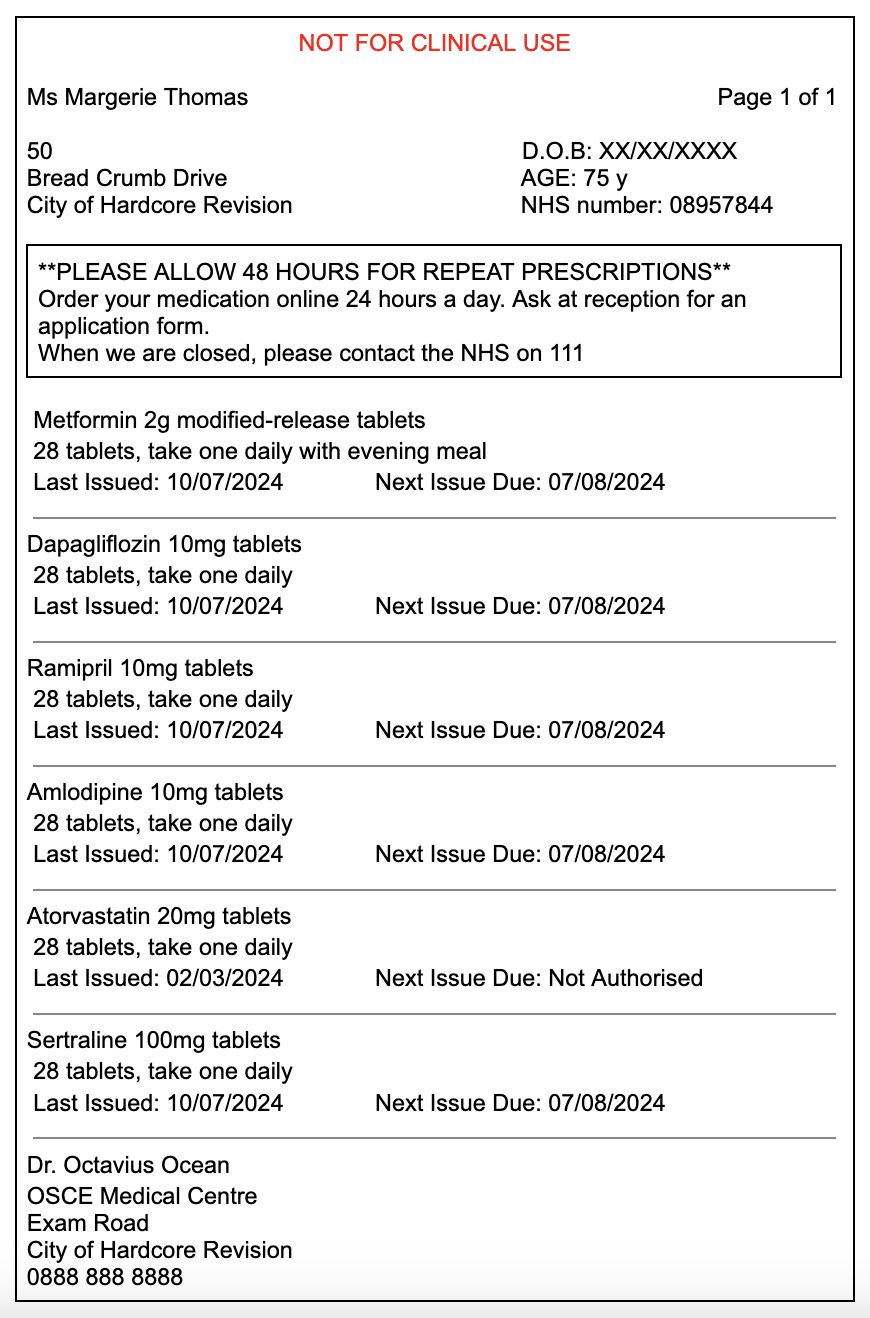 Add to Favourites
Add to Favourites

Scenario Tabs
In this scenario, the student should take a drug history from the patient and use their repeat prescription to document an accurate medication list for this patient before admission.
Please ensure that this scenario and mark scheme aligns with the most up-to-date guidelines from the UK NICE and the BNF when using it for your OSCE assessment.
You will need a student pharmacist and an actor for this OSCE station.
Polypharmacy
Cardiovascular System
You are a pharmacist working in the hospital. Please take an accurate medication history from Margerie Thomas, a 75-year-old female, who has just been admitted following a fall. You should gather relevant information from the patient and use their repeat prescription taken from their GP record to create an accurate up-to-date medication list.
To do:
You DO NOT need to give any advice or information to the patient.
You have 10 minutes.
You have access to a BNF.
Resources:
Assume today’s date is 19/07/2024

You are Margerie Thomas (Mar-jeh-ree Tom-as)
Opening statement: "I have been told you want to ask me about my medications."
Patient information:
To be given if the student asks.
Medication History (State only when prompted):
If the Pharmacist Asks:
Any criteria in red must be written down accurately to pass this OSCE station.
CORRECT ANSWERS: https://oscetoolbox.com/files/pdfs/medicine-reconciliation-1-answer-sheet.pdf
This website uses cookies to ensure you get the best experience
Learn more